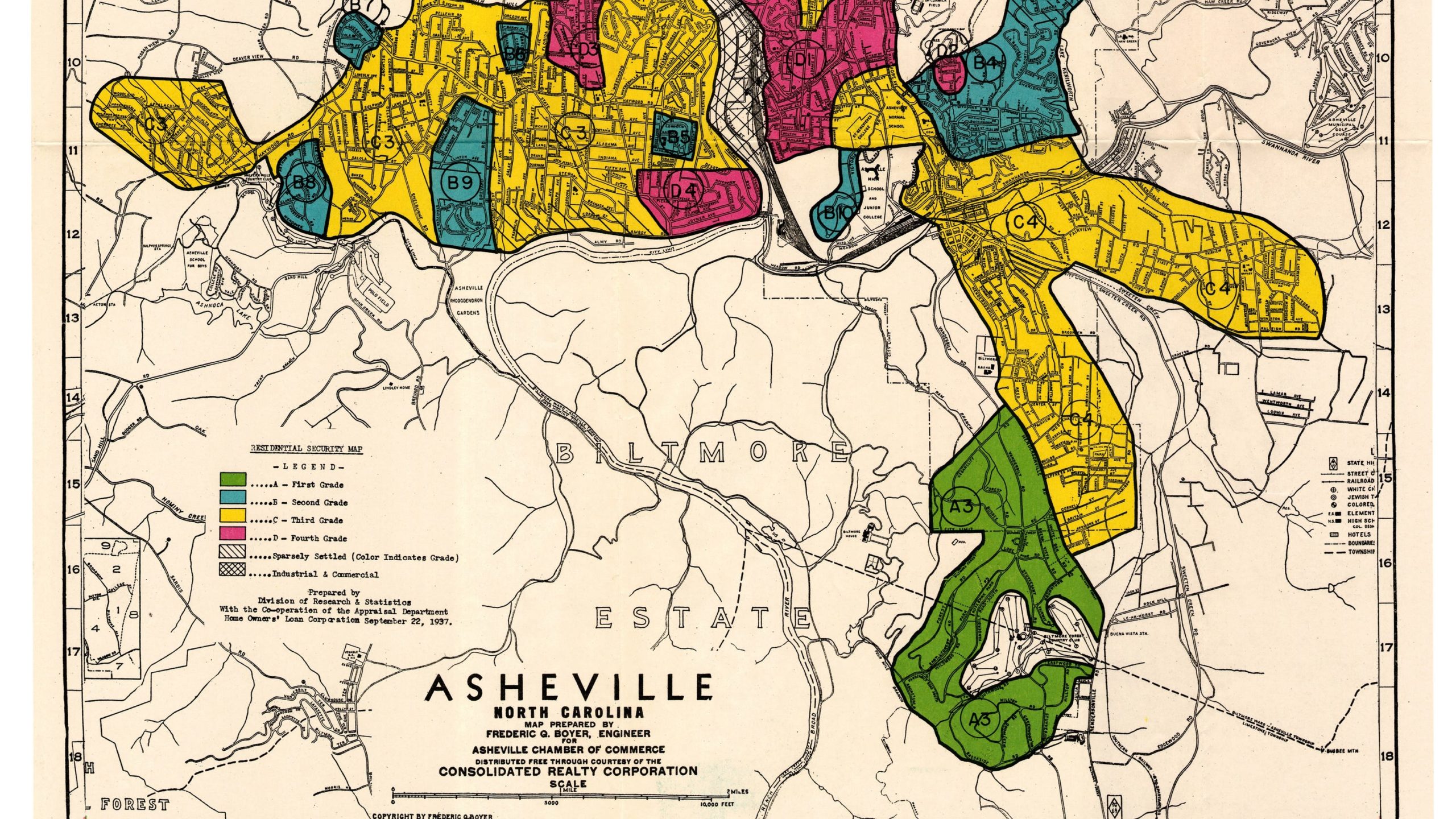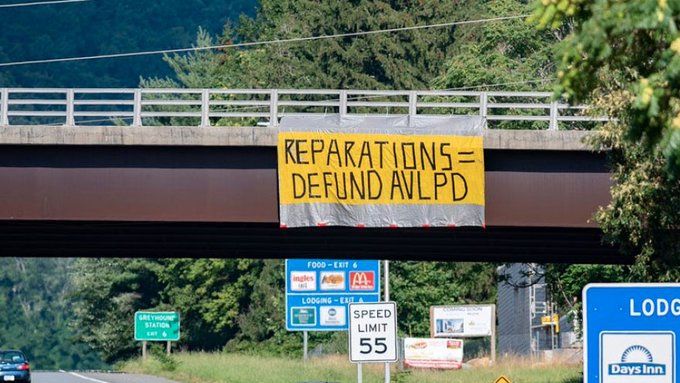This article is part of FAB’s ReparationsNYC project – which explores why and how reparations to Black communities could be addressed in NYC.
Last week, the Asheville, NC City Council made national news by unanimously voting to start a process of reparations for historic harms to its Black community. As the Congressional bill H.R. 40 – “a study and consider a national apology and proposal for reparations” awaits movement in Washington, others are taking the lead.
Besides Asheville, there are initiatives in Providence and Chicago and a proposed statewide initiative in California. Evanston, IL has already begun the work, using 100% of the sales tax on recreational marijuana to fund its reparations program.
Asheville has a population of 93,000, of which 12% are Black. Local response to the Council’s resolution was mixed as can be expected, but a reporter for the North Carolina News Daily noted how frequently commenters voiced surprise that the mountainous northwest of North Carolina engaged in slavery. Peter Tomasek responded
“ The logic goes like this: there weren’t many plantations, so there weren’t many slaves. But there was plenty of wealth to be made on the backs of slaves. Slavery was prevalent on small farms, in hotels, mines, and plants, and even with professionals like lawyers and doctors.”
Reparations advocates like William A. Darity Jr. point out that local initiatives cannot fill the need for federal action. Yet, local initiatives like those in Asheville may provide powerful momentum for reparations at a national scale.
“I always felt like reparations were going to come from the federal government and trickle down. ……..But I think that’s the idea of this movement: We’re trying to defy and dismantle the top-down power, the top-down decision-making, and do something that really focuses on empowering the people and their families and their community.
— Sheneika Smith, Asheville City Councilmember, July 2020 interview
Highlights from the Asheville City Council resolution include:
- – Apologies and intentions to make amends for the city’s history in the enslavement of Black people, enforcement of segregation, and for an urban renewal program that destroyed multiple successful Black communities
- – Developing short, medium and long term plans which address the creation of wealth and boost economic mobility in the Black community, which may include
- – Increasing home ownership and access to affordable housing
- – Increasing business ownership and career opportunities
- – Creating strategies to grow equity and generational wealth
- – Close gaps in health care, education, employment and pay, neighborhood safety and criminal justice
- – Calling on other organizations and institutions in Asheville that benefitted from racial inequity to join the city in its apologies, address racism within their own structures, and work with the city to address systemic racism
- – Calling on the State of North Carolina and the federal government to initiate policymaking and provide funding for reparations at the state and national levels
LINKS
Interview with Sheneika Smith, Asheville City Councilmember (LINK)
“North Carolina City Approves Reparations for Black Residents”, NY Times (LINK)
See definitions of Reparations at Movement 4 Black Lives (LINK) and the International Center for Transitional Justice (LINK)
Learn about the history of the national reparations movement at the ACLU (LINK)


